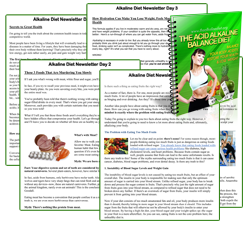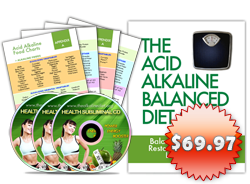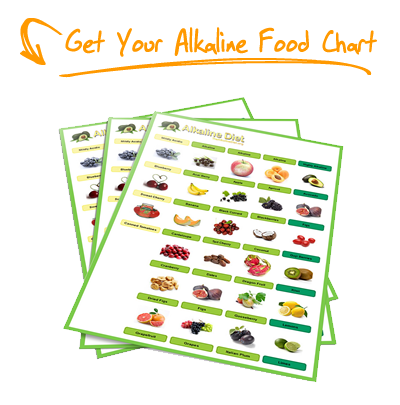The Truth About Milk That Companies Don’t Want You To Know
Posted on 18. Mar, 2010 by Emma Deangela in Alkaline Diet Tips, Blog
 The foods we eat are based on the common notion that is implied on those foods. We tend to choose what is known to be healthy and good for us.
The foods we eat are based on the common notion that is implied on those foods. We tend to choose what is known to be healthy and good for us.
It’s considered a fact that milk and other dairy products are good for the body and there is no doubt about it. Unfortunately, according to latest studies, these foods that we consume tell the opposite to this fact and without us knowing about it, we continue to patronize these products without second thought.
And that’s exactly the reason why I’ve written this article. You could be on your way to living a healthier lifestyle and be free from the unwanted effects of these common household products, only if you didn’t believe these 4 common myths:
Myth#1: Milk is Undeniably Healthy for Our Body
Fact: The nutrients in cow’s milk, cheese and other dairy products contain saturated animal fat, cholesterol, animal protein called casein, as well as growth and hormone factors. These nutrients are associated with the many fatal diseases. Here are the most common ones:
Cancer
Nutrition plays a big part in cancer. Dairy products such as cow’s milk contain 35 various hormones such as estrogen, and 11 growth factors. These elements are responsible for the cells to grow out of control and several evidences show how it is linked to many kinds of cancer.
Colic
Colic is an acute abdominal pain that mostly affects infants. According to early studies, the foods that a mother consumes when she is breastfeeding have a great affect on her baby. Nutrients like the whey protein and lactose that is mixed in cow’s milk formula for babies might be the common cause of colic.
Coronary Heart Disease
Since dairy products contain high levels of saturated fat, it contributes a lot in the onset of coronary heart disease. This disease is caused by a build up of fatty deposits in the arteries which can lead to an obstruction of blood supply to the heart. The saturated fats in milk increases cholesterol levels which then leads to build up of the fatty deposits. The result of this is a heart attack.
Diabetes
Diabetes affects more than one million people in the UK and US and continues to increase over time. It’s a chronic disease that causes glucose (sugar) to build up in the blood due to the lack of hormone insulin. Diabetes brings several health conditions where the entire nervous system is greatly affected. Evidence shows that eliminating any kinds of dairy in the diet of someone who suffers from diabetes can have an improved chance of being treated.
These are just some of the common health diseases that dairy might cause. Others include several heart disorders besides coronary heart disease, prostate cancer, ovarian cancer, asthma, constipation, eczema, and Crohn’s disease. Ironically, it can also be the cause of those that are known to be prevented by taking dairy products like arthritis and osteoporosis.
Myth #2: Milk is the only source of calcium
Fact: According to the Food Standards Agency’s National Diet and Nutrition Survey, milk is not the only source of calcium. In fact, it has less than half calcium in the average diet of Americans and Brits. And in addition to that, many people in the world obtain it from plant-based sources and don’t rely much on dairy products alone as a source of calcium.
Here is a list from http://milkmyths.org.uk that represents a number of foods that are rich in calcium:
Food (and serving size) Calcium (milligrams)
Cauldron Foods Organic Plain Tofu
(one pack – 250g) 500
Sesame seeds (25g – a small handful) 168
Sunflower seeds (25g – a small handful) 28
Broccoli (80g portion boiled in unsalted water) 32
Curly kale (80g portion boiled in unsalted water) 120
Watercress (80g portion raw) 136
Almonds (30g – a small handful) 72
Brazil nuts (30g – a small handful) 87
Alpro Soya Milk (200ml glass) 240
Dried Figs (100g – four to six pieces of fruit) 250
Tahini (10g – two teaspoonfuls generously spread
on one piece of toast or stirred into a bowl of soup) 68
Myth #3: Milk is a Good Source for Preventing Osteoporosis
Fact: While it’s a common concept that dairy products are best for osteoporosis, recent evidences show the other way around. According to studies, those who consume dairy products regularly are more prone to osteoporosis that those who don’t. Dairy products actually increase the risk of bone fracture as well as the animal protein which increases the risk of bone loss.
To prevent osteoporosis, it is best to cut out on dairy products on one’s diet as well as exercise and maintain a proper diet with lots of fruits and green leafy vegetables.
Myth # 4: There is No Such Thing as Milk Allergy
Fact: Milk is associated with many food allergies and affects around 2% of all infants around the world. The most common is lactose intolerance. It’s the inability to digest the sugar in milk, or also known as lactose. The enzyme lactase is responsible for digesting lactose and this enzyme is only present among infants until the age of two or after the weaning. After that time, the body is no longer able to digest lactose which makes it unsuitable for us. Yet, milk is still consumed by many as part of their diet. Some symptoms of lactose intolerance include diarrhea, nausea and cramps. The only treatment for this is to avoid dairy products altogether.
Based on statistics, many people around the world suffer from this milk allergy. According to NHS Direct on 2005, it is evident among 95% of Asians, 75% of Afro-Caribbean people, 50% of Mediterranean people and 10% of Northern people.
Healthier Alternatives
Now that you’ve learned the many adverse effects of dairy products, you should then decide to drop those in your diet and opt for a healthier alternative. The best choice is to consume more fruits and vegetables, wholegrain products such as oats and bread, as well as nuts and seeds.
Cutting out on saturated animal fat and proteins from dairy products doesn’t mean you can say goodbye to milk, cheese and butter. There are many dairy-free alternatives that are widely-available on health food shops and specialist companies. In addition, here’s a list of healthy foods that can be used as a replacement for your regular dairy products.
- Probiotic Drinks – These drinks are healthy because of its live cultures and calcium that promotes easy digestion and normal bone development
- Oat meals – oat fibers are good for reducing cholesterol levels and promote a healthier heart. It’s also rich in Vitamin E and folic acid which is good for the skin and boosts the immune system.
- Vegan Cheese – Although cheese is regarded as a dairy product, there’s a wide assortment of dairy-free cheese products to choose from. Many are good for those who are suffering in lactose intolerance and it has no fats, cholesterol or genetically-modified ingredients.
- Almond milk – Almond milk is a much better alternative than milk and it even taste more delicious.
- Mayonnaise – There are also healthier mayonnaises that contain organic ingredients instead of the usual eggs and high levels of animal fats.
To summarize, milk is not that good as we all know and there is an increasing amount of case studies that prove that. Researchers concluded that milk does more harm than good to our health and recommends a more suitable diet that’s free from dairy products on the whole.
This can conveniently be done as there are many dairy-free alternatives that are available on the market. It’s proven to be healthier and capable of altering the harmful effects of milk and other dairy products.





Nicole Boyd
21. Mar, 2010
Emma,
While it is certainly true that commercial dairy is indeed the most undesirable form of dairy products available, I do not believe that replacing dairy with processed foods such as “vegan cheese” and almond milk are sound solutions to the problem. Of course milk products that are the result of factory farming techniques are going to be unhealthy. Milk from confined cows that are fed solely on grain is nutritionally subpar in the first place, let alone after it has been pasteurized and homogenized- both of which negatively alter fragile proteins and fats.
If a person wants to include dairy in their diets, the best possible choice is that of raw, unadulterated dairy products from healthy, disease-free, and pasture-fed animals. Raw dairy products contain live probiotic bacteria and beneficial enzymes which take much of the digestive stress off of the body. I have worked with many people who previously could not tolerate dairy, only to find that they responded very well to real milk.
Processed substitutes are never the answer. Consume food the way it has been presented to us by nature itself- intact and unspoiled by modern food-processing methods. Unfortunately, it’s the kind of sense that just isn’t very common amongst us anymore.
Sincerely,
Nicole L Boyd
Certified Nutritional Therapist, and soon-to-be Registered Nurse
Emma
21. Mar, 2010
@Nicole Boyd: Thanks for taking the time out to comment on this entry. I honestly appreciate your contribution.
The content in this entry is meant for processed milk and how it is often misrepresented in today’s media. For most parts of the world, only processed milk is available and you can imagine – any good in the milk would already be destroyed.
I’ve worked with people who stop drinking milk for years and they are living much better off without milk. But because we are living in Asia, it is very difficult to get real milk.
In my opinion, this would be my snacking decision..
almond milk or goat milk > real milk > processed milk
Just out of curiosity, in what circumstances do you advice your patient to drink real milk? And what are the changes after drinking the milk?
Cheers!
Emma
Raw Cow’s Milk Facts – Good Or Bad? | Alkaline Diet
07. Apr, 2010
[…] Posted on 07. Apr, 2010 by George in Alkaline Diet Tips, Blog Earlier, our website has published an article on “The Truth About Milk That Companies Don’t Want You To Know”. […]